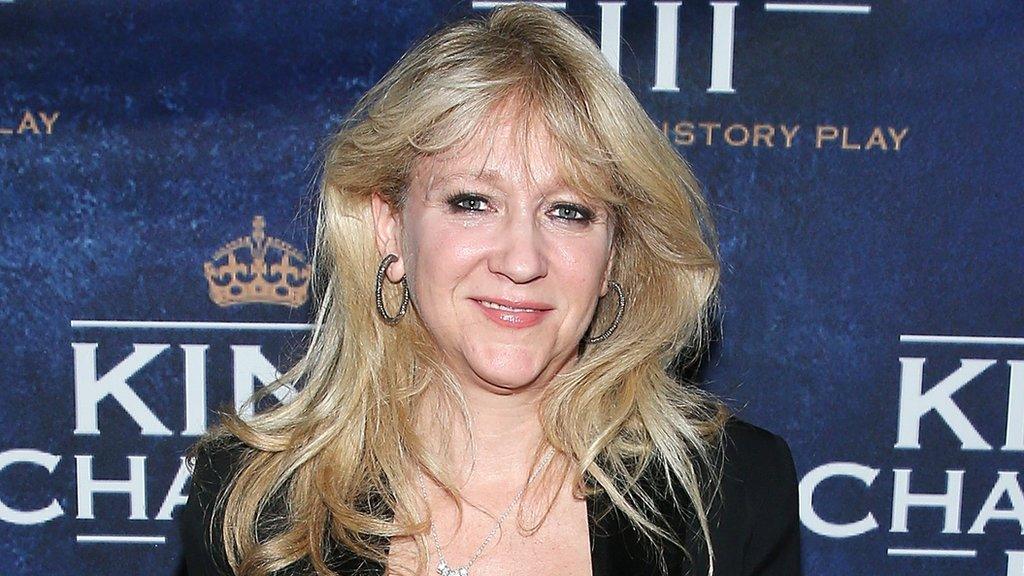Sonia Friedman on juggling Mean Girls and Dreamgirls
- Published
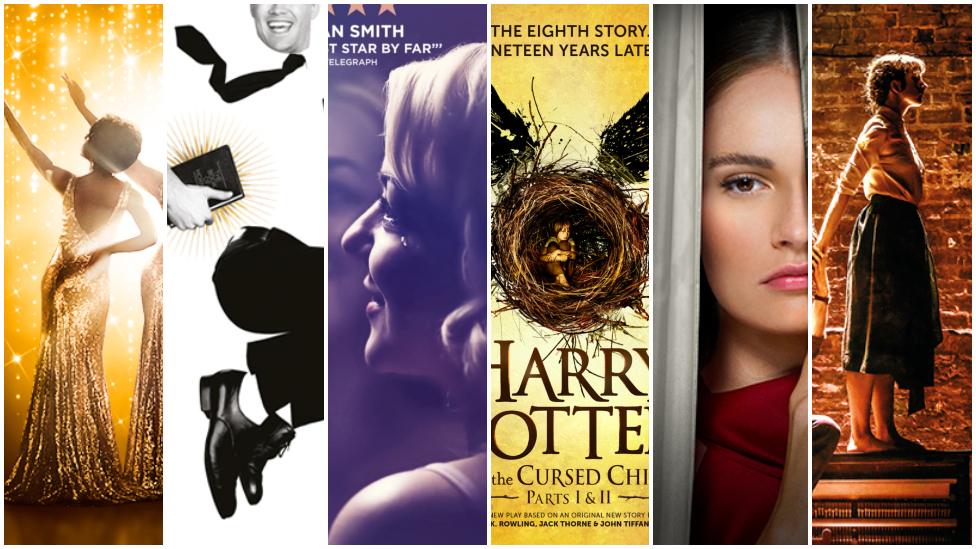
Throw a stone in the West End and you'll probably hit a Sonia Friedman production.
With Dreamgirls, The Book of Mormon and Harry Potter and The Cursed Child among her current credits (and that really is naming just a few), the producer has a CV that speaks for itself.
The 53-year-old has been described as the most powerful person in theatre by The Stage and named as one of Time's 100 most influential people.
"She knows what audiences want to see, even before they do," said James Corden, external earlier this year.
"As we spend more time on great digital experiences... we will start to crave great live experiences too. There is no one better to deliver them than Sonia Friedman."
But, when speaking to BBC News, the producer plays down her own success.
"These lists are great, I love it, and it's fun - for a moment. Literally a moment. And then you're back to the hard work," she says.
"You're looking at me now, I've still got puffy eyes, I'm still exhausted, I'm still insecure, I'm still really worrying about what next, I still don't believe any of [the success] is real, because the thing that keeps me going is that this could end at any point.
"I work on the basis that everything is going to go wrong. So that means most things don't go wrong because I'm always trying to circumvent it."

The editor of The Stage says Harry Potter took Friedman's career to a new level
The hard work Friedman refers to involves countless transatlantic trips, in order to keep her finger on the pulse of the theatre industry both on Broadway and in the West End.
Indeed, one such flying visit to London early this year resulted in her seeing a show she would go on to transfer to the West End - Summer and Smoke.
The play was on at the Almeida at the time, and after receiving a tip-off from her staff, Friedman used her only night off during her trip to see it.
Relative to A Streetcar Named Desire or The Glass Menagerie, Summer and Smoke is one of Tennessee Williams's lesser known and more experimental plays.
Set in Mississippi in summer, it tells the story of Alma, a nervy preacher's daughter, and her relationship with John - a young and angry neighbour whose scene is more sex and alcohol.
"Summer and Smoke certainly doesn't belong in the top drawer of Tennessee Williams's plays," said Charles Spencer in The Telegraph, external when it was last performed in the West End in 2006.
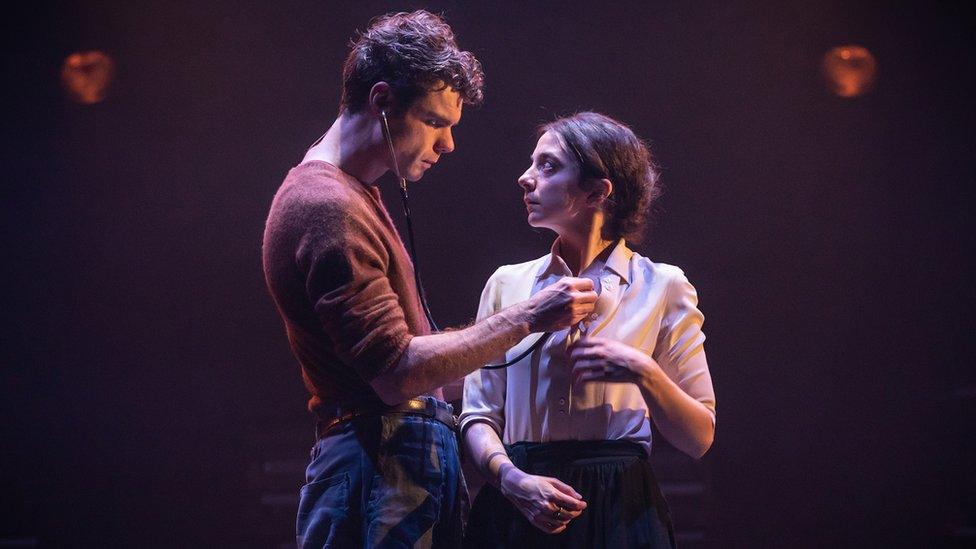
Matthew Needham and Patsy Ferran star in Summer and Smoke
While critics generally praised the production itself, Michael Billington also noted in The Guardian, external the play was "not vintage Tennessee".
Which perhaps raises the question of why it's been revived now, and indeed why Friedman earmarked it as having West End potential.
"I think there's an assumption that if a Tennessee Williams play is not known, it means it's not good enough, or as good as his other works," Friedman says.
"And I think what [director] Rebecca Frecknall has done is released the play through her expressionistic production. She's freed the play.
"And I found it very inspiring, very moving, this play about body vs. soul, and how two people who have this incredible connection, can't come together."
The latest production of the play has received a warm response from critics, with five star reviews from Time Out, external, The Telegraph, external and WhatsOnStage, external.
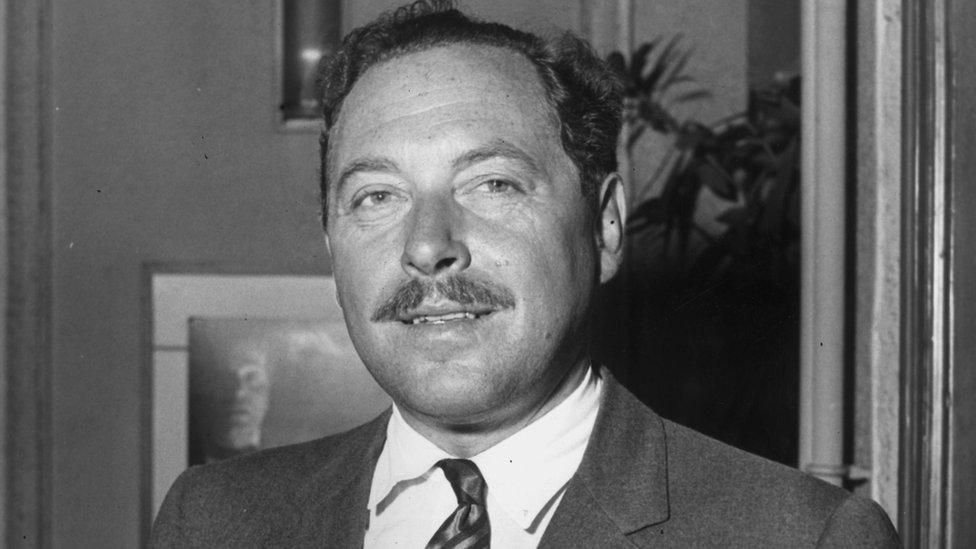
Summer and Smoke is one of the lesser known plays of Tennessee Williams (pictured in 1959)
So - let's get down to what a producer actually does.
"I have two main roles," explains Friedman. "One is to have an idea, and to put together the creative team with the play, which might be a new play, a commission, an option, an adaptation or a revival.
"The other side is the business model. The scale, the budget, the finance, the positioning, the marketing, the theatre, the timing, the scheduling, the staffing, the contracting, the negotiating."
In the case of transfers, as opposed to works her company originates, Friedman says she tries not to interfere too much with the heart and soul of the original production.
"I don't want to change what I've seen, because that's what I've seen and that's what I love.
"My objective is for it to be even better than, more superlative, to move into the space, and for that new space to feel as natural as the original space."
When she topped The Stage's power list in 2017, the newspaper's print editor Alistair Smith said the previous year's launch of Harry Potter had seen her career reach a different level.
"Sonia Friedman has enjoyed a number of notable hits in recent years... but in 2016, she went stratospheric," he said.
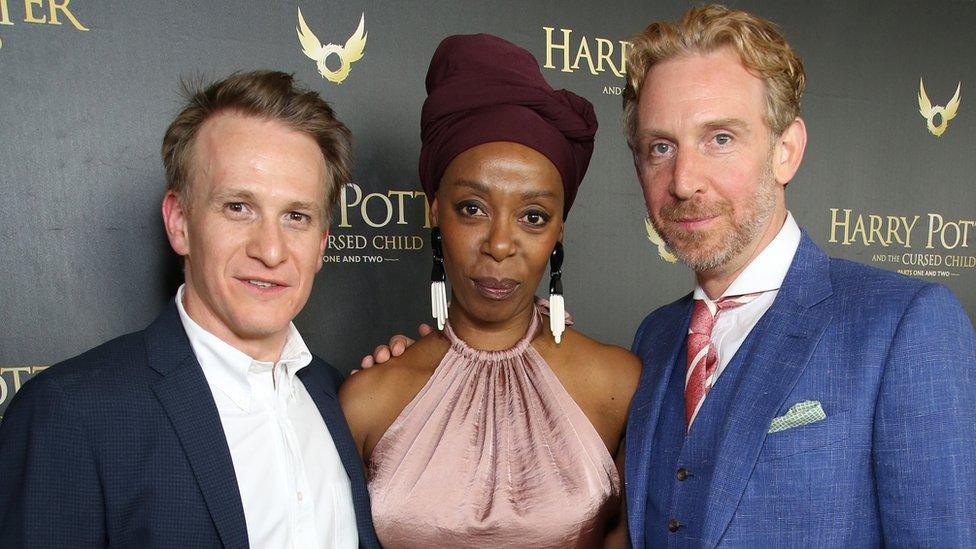
Harry Potter transferred to Broadway with its stars Jamie Parker, Noma Dumezweni and Paul Thornley
"Harry Potter and the Cursed Child was always likely to be a licence to print money. What has made it really special was that Friedman and her fellow creatives resisted the temptation to treat the production as a cash cow and created something truly magical, original and - above all - theatrical."
In the US, one of Sonia's recent Broadway projects involved bringing Mean Girls to the stage - a 2004 movie starring Lindsay Lohan, which was partly based on Rosalind Wiseman's Queen Bees and Wannabes, a self-help book published in 2002.
"That was really interesting to me because of the world we now live in, and social media. And how young girls are coping with the pressure to be perfect and the trolling and the bullying, even though it was set a long time before all of that," she says.
"We worked with Tina Fey to update the book and that was what really excited me about the project; can a story that was so powerful to a generation before social media, still be relevant, and have the same poignancy? And it does."

Writer Tina Fey (centre) joined the cast on stage at the opening of Mean Girls
With so many shows to oversee, there's arguably a risk that quality is compromised.
But, Friedman says: "I don't worry about quality control because that's the bit I'm involved in.
"The area I miss having is that I'm less available to enjoy the good times.
"I'm less available to pop in and out of the dressing rooms. To watch the shows multiple times. To go to cast drinks and parties.
"And actually that's the great challenge of this phase of my career. I went into theatre to create families, to create companies, to immerse myself in other stories, and now I can't."
- Published5 January 2017
